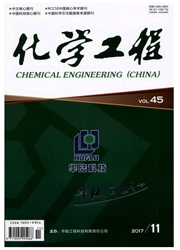

 中文摘要:
中文摘要:
在不同的条件下对3种煤进行了超声萃取实验,将萃余煤制焦并进行CO2气化实验,以研究超声萃取条件对萃余煤焦的气化反应性影响。结果表明,除褐煤外,超声萃余煤的气化反应性远高于原煤和普通萃余煤。超声波的存在、超声时间、原煤的变质程度都对超声萃余煤反应性有影响。超声作用能大幅提高萃取率,在较大程度上增加萃余煤的孔隙率和比表面积,使其反应性增加;同时由于原煤中大量的小分子活性物质被萃取,也会导致萃余煤反应性降低。
 英文摘要:
英文摘要:
Three kinds of coal were used in ultrasonic extraction under different experimental conditions, and the residues were heated to generate the chars for their gasification with CO2 so as to investigate the effect of conditions on the gasification reactivity of the residues. The experimental results show that the gasification reactivity of ultrasonic extraction residues of coal was much higher than that of raw coal or non-ultrasonic extraction residues of coal except for the lignite, and the gasification reactivity was affected by the use of ultrasonic, the time of ultrasonic treatment and the kind of coal. It represents that the extraction effect is greatly improved by ultrasonic treatment and the pore ratio and specific surface area are also enhanced, thus increasing the gasification reactivity; meanwhile, small molecules in coal are largely extracted from the coal, which can lower the reactivity of extraction residues.
 同期刊论文项目
同期刊论文项目
 同项目期刊论文
同项目期刊论文
 期刊信息
期刊信息
